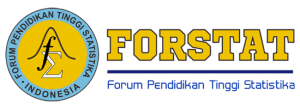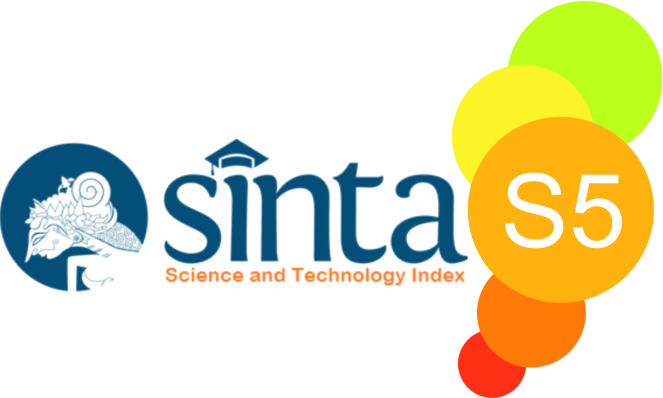Konsep Himpunan Fuzzy pada Paradoks Russel
(1) Jurusan Matematika, FMIPA, Universitas Negeri Makassar, 90224
(2) Jurusan Matematika, FMIPA, Universitas Negeri Makassar, 90224
(3) Jurusan Matematika, FMIPA, Universitas Negeri Makassar, 90224
(*) Corresponding Author
DOI: https://doi.org/10.35580/jmathcos.v2i2.12582
Abstract
Himpunan fuzzy menggunakan dasar logika fuzzy untuk menyatakan suatu objek menjadi anggota dengan derajat keanggotaan ( ), tetapi Logika fuzzy melanggar hukum logika biner sehingga muncul anggapan bahwa logika fuzzy memiliki masalah yang sama dengan paradoks. Tetapi nilai kebenarana logika fuzzy tergantung dari derajat keanggotaan yang dimilikinya sehingga dapat ditarik sebuah kesimpulan dari besar darajat keanggotaan tersebut, sedangkan paradoks nilai kebenarannya tidak dapat ditarik kesimpulan apapun. Paradoks merupakan bentuk kritik landasan yang bertujuan untuk mengungkapkan dan menentukan inkonsistensi atau kontradiksi yang dihasilkan dari beberapa eksperimen mental dalam matematika, salah satu paradoks yang terkenal dalam kritik landasan teori himpunan adalah paradok Russel Pemecahan paradoks Russel dengan menggunakan konsep teori himpunan fuzzy diperoleh derajat keanggotaan adalah 0.5 merupakan pernyataan setengah benar (half true) dan adalah 0.5 jugan merupakan pernyataan setengah benar (half true).
Kata kunci: Logika fuzzy, himpunan fuzzy, paradoks, paradoks Russel.
Fuzzy sets use the basis of fuzzy logic to declare an object to be a member with the degree of membership ( ), but fuzzy logic violates the law of binary logic so that the assumption arises that fuzzy logic has the same problem with paradox. But the true value of fuzzy logic depends on the degree of membership it has so that a conclusion can be drawn from the large membership ranks, while the paradox of its value cannot be drawn any conclusions. The paradox is a form of ground criticism that aims to express and determine the inconsistencies or contradictions that result from several mental experiments in mathematics, one of the paradoxes that is well-known in critics of set theory is Russel's paradox . The paradoxical solution of Russell by using fuzzy set theory concepts is that the degree of membership is 0.5 and is 0.5.
Keywords: Fuzzy Logic, fuzzy set, paradox, Russel paradox.
Full Text:
PDFReferences
Blair, B. (1994). Interview with Lotfi Zadeh Azerbaijan International. Azerbaijan, 1994(2.4). 46-47, 50.
Elkan, C. (1993). The Paradoxical Success of Fuzzy Logic, IEEE Expert, 9(4). 3-49
Gautama, S, E. (2013). Konsep Berpikir dari Sistematika Filsafat hingga logika Matematika. Kalimantan selatan: Sahabat.com.
Grim, P. (1993). Self Reference and Chaos in Fuzzy Logic. IEEE Transaction on Fuzzy Sistem. 1(4). 237-253.
Haryono, D. (2014). Filsafat Matematika. Bandung: Alfabeta.
Kosko, B. (1993). Fuzzy Thinking: The New Science of Fuzzy Logic. Hyperion: New York.
Kusum, S., & Purnomo, H. (2010). Aplikai logika fuzzy untuk Pendukung Keputusan (Edisi 2). Yongyakarta: Graha Ilmu
Kahagia, A., dkk. (2013). On the Use of Fuzzy Logic and Learning Automata Optimization to Resolve the Liar and Related Paradoxes, journal of intelligent & fuzzy system, 24, 111-120.
Paul, E. (2004). The Philosophy of Mathematics Education. Taylor & Francis e-Library.
Johson, R. (2002). Fuzzy logic and fuzzy logic sun tracking control. Calvin College, Machigan.
Yuana, A, K. (2010). The Greates Philossophers 100 Tokoh Filsuf Barat Abad 6 M-21M yang Menginspirasi Dunia Bisnis. Yongyakarta: CV. Andi Offset.
Prabowo, A. (2009). Aliran-Aliran Filsafat dalam Matematika. Fakultas Sains dan Teknik. Universitas Jendral soedirman
Potter, M. (2004). Set Theory and Its Philosophy. New York: Oxford University Press
Article Metrics
Abstract view : 1146 times | PDF view : 5 timesRefbacks
- There are currently no refbacks.
Copyright (c) 2020 Journal of Mathematics, Computations, and Statistics
Indexed by:

This work is licensed under a Creative Commons Attribution-NonCommercial-ShareAlike 4.0 International License.











